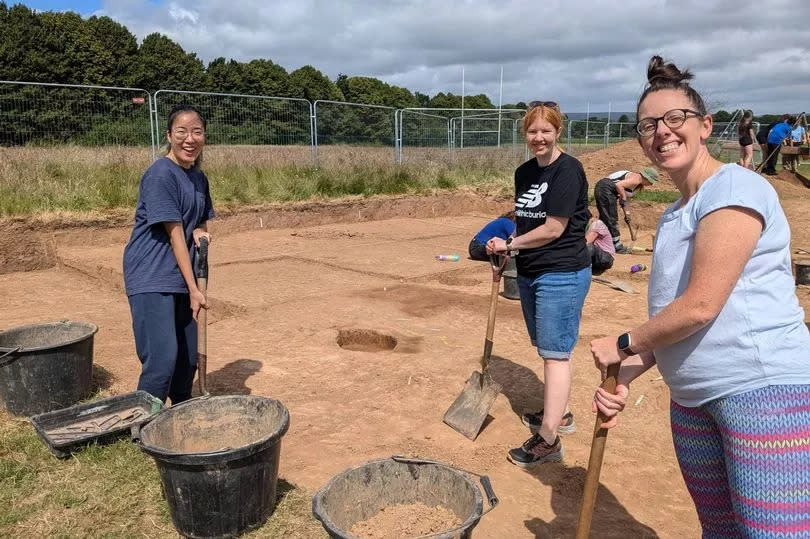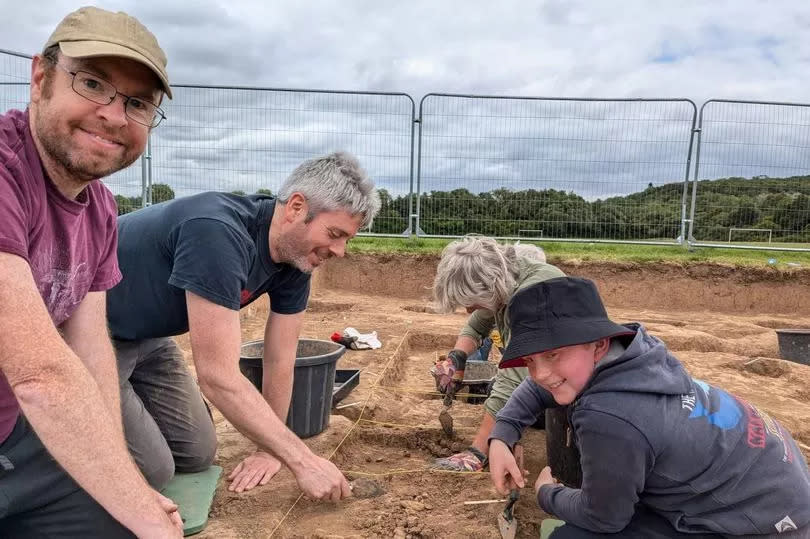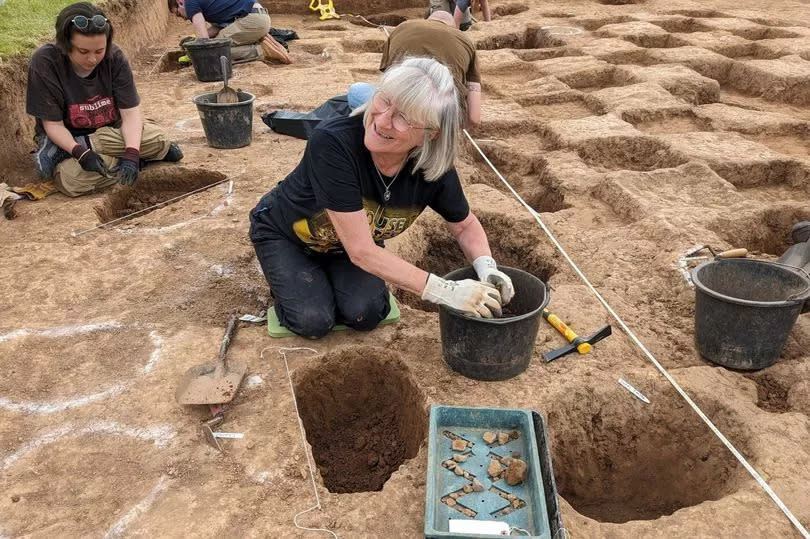The project that has unearthed the oldest house in Cardiff and brought a community together

Archaeologists and volunteers have continued working to uncover a trove of prehistoric artefacts under a park more commonly home to dog walkers and sports teams. The dig at Trelai Park in Cardiff, organised by the Caerau and Ely Rediscovering (CAER) Heritage Project, has uncovered the rich history of what might otherwise seem like an ordinary green space.
During the first dig in 2022 a roundhouse was discovered that dates back to around 1500 BC. It is believed to be the oldest house at Cardiff.
This year the project has focused on excavating around the roundhouses to find out how people lived 3,500 years ago. They have unearthed prehistoric pottery which would have been used by those living in the roundhouses to cook and eat food as well as possibly even to hold the cremated bones of their ancestors.
Read more: A man died with no immediate family, but you wouldn't have known it from his amazing funeral
Read more: Cardiff's new bus station has left people with mixed opinions
Project director Dr Oliver Davis from Cardiff University said the style of the pottery found had been interesting. He said: "It is decorated in a particular style that is common in places like Cornwall and Devon. So we can begin to suggest that there are Bronze-Age connections. These are not just isolated communities living in south Wales – these are people who are connected to what is now the southwest peninsula of Devon”.

The team have also found there is something underneath the houses alongside what could possibly be human cremated bones and so are hoping to head back for a dig at Trelai Park next year. For the latest Cardiff news sign up to our newsletter here.
The dig is a real community effort shaped as much by volunteers as by experts. Over the last three and a half weeks the site has had more than 1,500 visitors including around 260 pupils from 10 local schools and 250 volunteers. Dr Davis said this year has been "the most successful year yet".
He added: "It’s been amazing to see the passion of people from Caerau and Ely to learn about the story of the place that they live. It’s also wonderful to see people from broader Cardiff come down here and see the warmth and the excitement in these communities."

Showcasing the communities of Caerau and Ely is a key objective of the CAER Heritage Project. Dr Davis said: "These are communities that often get a really bad press. We don’t shy away from [the issues]. But as well as that there’s incredible talent and warmth in these places and its wonderful to be able to show that off.
“Our project is all about trying to find something out about [Caerau and Ely's] archaeology but with local people at the heart of everything so they are telling their own stories and, in doing so, learning new skills, making new networks, making new friends. All those kinds of things that can help be part of a community’s regeneration.”
The project brings educational opportunities and the chance to learn practical skills that they may not otherwise get. Scott Bees, who was previously a postman and a community development officer in the local area, is now at Cardiff University studying archaeology after he volunteered with CAER Heritage.
Scott described the project as "fantastic for the local community". He added: "It brings a sense of belonging and togetherness to a very large area of people who live in a deprived community. It gives us a sense of togetherness."
Volunteer Kim Iannucci also spoke of the role the project plays in bringing different people together, adding: "I've met such a variety of people there – some students, some volunteers, and some experts – so it's a fantastic way for people to come together."

There is still time to get involved in the project as the items that were recovered in previous digs are currently on display at the Museum of Cardiff in The Hayes until August 31. Everything that has been found this year will also be cleaned by a weekly volunteering group at the CAER Centre in Caerau.

 Yahoo News
Yahoo News 
